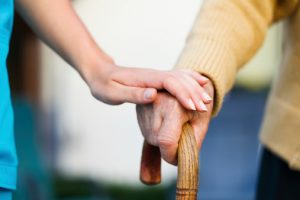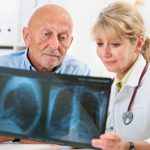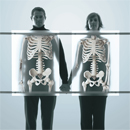 Aging affects our bodies and our minds. Growing old is inevitable, but let’s be honest for a moment, no one wants to grow old. In a perfect world we’d be 21 forever, but unfortunately, Mother Nature has a different plan for us. And so every year we celebrate another birthday, our skin loosens and our abilities start to diminish. No one said growing old would be fun, but even in our advanced age we can look back on a life filled with memories.
Aging affects our bodies and our minds. Growing old is inevitable, but let’s be honest for a moment, no one wants to grow old. In a perfect world we’d be 21 forever, but unfortunately, Mother Nature has a different plan for us. And so every year we celebrate another birthday, our skin loosens and our abilities start to diminish. No one said growing old would be fun, but even in our advanced age we can look back on a life filled with memories.
Unfortunately, sometimes those memories begin to fade. One famous comedian said, “By the time you’re eighty years old you’ve learned everything. You only have to remember it.” Although we may chuckle at this statement, it also reveals the effect that aging has on our bodies.
Advertisement
We’d be lying if we said aging was an easy process – it’s not. There are many changes that occur as we age. But the good news is the more we know about these changes, the more we can work to slow them down and improve them. So with that in mind, here are the common effects of aging.
Related reading: Secret to anti-aging starts with our diet
Effects of aging on the brain and nervous system
 The brain is a remarkable thing. It instantly sends signals all over your body that allow you to do whatever you desire. Before you can think about picking up a glass, it’s already in your hand. Before you can think about putting one foot in front of another, you’re already down the street. But our brain and nervous system are not immune to the effects of aging.
The brain is a remarkable thing. It instantly sends signals all over your body that allow you to do whatever you desire. Before you can think about picking up a glass, it’s already in your hand. Before you can think about putting one foot in front of another, you’re already down the street. But our brain and nervous system are not immune to the effects of aging.
With aging comes memory decline. Dementia, Alzheimer’s, mild cognitive impairment, these are just some common cognitive problems that arise with aging. Let’s examine some of the other common effects of aging on the brain and nervous system.
Memory loss: As mentioned, memory loss seems tied to aging. Seniors may become more forgetful, have difficulty finding the right words, or even begin missing important occasions.
Although memory loss can be affected by aging, other factors include medications, tumors, infections or dementia.
Often memory loss may be minor and the person can still live a normal life. But when it becomes severe, like with Alzheimer’s disease, a person might require more assistance.
Silent stroke: You’ve most likely heard of stroke, but maybe not about silent stroke. Silent stroke primarily affects seniors and results from a brain abnormality. Individuals usually ignore symptoms because they don’t associate the symptoms with a stroke. But this is a big mistake since silent strokes increase the risk of having a major stroke or developing dementia.
Vascular dementia: Vascular dementia is a common cause of dementia. Diagnosis is difficult because patients are not aware of the symptoms as with Alzheimer’s. It is still characterized by forgetfulness, and if caught early, lifestyle changes can be implemented to slow down the cognitive decline.
Related reading: Healthy aging blood test helps diagnose Alzheimer’s disease and dementia
Effects of aging on the cardiovascular system
 Years of unhealthy habits can really take a toll on your cardiovascular system in later life. Drinking, junk food and high amounts of stress in your younger years can all accumulate and leave you with a weaker heart.
Years of unhealthy habits can really take a toll on your cardiovascular system in later life. Drinking, junk food and high amounts of stress in your younger years can all accumulate and leave you with a weaker heart.
Because our heart does so much for the body, it can take quite a beating during the aging process. Unfortunately, it begins to weaken, which can affect blood pressure and circulation.
Angina: Blood flow to the heart muscle is reduced, resulting in chest pains and even a heart attack.
Abnormal heart rhythms: Heart may speed up, slow down, or have long pauses in between heartbeats.
Anemia: Low iron count can result from malnutrition, blood loss or medications.
Arteriosclerosis: Arteries begin to harden due to deposits of fatty plaque.
Congestive heart failure: Ten times more likely to occur in those over the age of 75.
Coronary artery disease: Results from arteriosclerosis.
High blood pressure: More common in older age. Stress, diet, weight and physical activity can also contribute to high blood pressure.
Aortic stenosis: Narrowing of the aortic valve prevents the proper circulation of blood, causing pooling in the heart.
Related reading: Atherosclerosis plaque rupture, heart attack and stroke risk detecting tool developed
Effects of aging on the immune system
Our ability to fight off illness and stay healthy is largely due to our immune system. But as we age, even our immune system can become weak and stop protecting us like it used to. Our immune system begins to work slower, and autoimmune diseases may develop and even the healing process becomes impaired.
Autoimmune disease: An autoimmune disease occurs when the immune system, in error, begins attacking itself. Essentially, good cells become destroyed because the immune system attacks them. Some examples of autoimmune diseases are Crohn’s disease and multiple sclerosis.
Slower to heal: Immune cells diminish with aging, so when injury or infection occurs the healing process lengthens. Having another medical condition can also slow down healing.
Effects of aging on the respiratory system
 The ability to breathe – or take in oxygen – is essential for the body. When oxygen is used up, carbon dioxide has to be expelled. As the respiratory system becomes weaker and less efficient, the ability to expel carbon dioxide becomes more difficult.
The ability to breathe – or take in oxygen – is essential for the body. When oxygen is used up, carbon dioxide has to be expelled. As the respiratory system becomes weaker and less efficient, the ability to expel carbon dioxide becomes more difficult.
The effects of aging on the respiratory system include a smaller ribcage. As the muscles between the ribs become weaker, the rib cage can contract around the lungs and make breathing more difficult. Weak muscles also hinder a senior’s ability to inhale and exhale.
Lung infections: Seniors are more prone to lung infections, including pneumonia and bronchitis.
Shortness of breath: As mentioned, a contracting rib cage and weaker muscles can make it more difficult to breathe.
Low oxygen level: Low oxygen levels have been linked to a reduced ability to fight off infection.
Sleep apnea: Abnormal breathing patterns, as well as being overweight, can contribute to sleep apnea. Disrupted sleep can lead to further illness.
Related reading: Asthma, COPD and bronchitis: Key differences in common respiratory diseases
Effects of aging on the digestive system
 You probably can’t eat the same way you used to? It’s because aging is taking a toll on your digestive system. The days of fast-food, overeating and large meals are left behind as you grow older.
You probably can’t eat the same way you used to? It’s because aging is taking a toll on your digestive system. The days of fast-food, overeating and large meals are left behind as you grow older.
Constipation: Seniors more commonly experience constipation. Changes in eating habits can be a cause of this. Also, because the digestive system works slower, it takes longer for food to pass through.
Polyps: Polyps are small growths along the colon. Often they are benign, but there is a chance they will become cancerous. The exact cause of polyps is unknown, but diet is believed to be a major factor.
GERD: Gastroesophageal reflux disease occurs in the upper gastrointestinal tract. Stomach acid backs up into the esophagus, which leads to heartburn. Overtime GERD can progress to cancer of the esophagus.
Diverticular disease: Pouches in the colon begin to bulge along weak spots in the intestinal wall. This can lead to gas, bloating and cramps.
Effects of aging on the endocrine system
 The endocrine system produces our hormones through a series of tissues and organs. Hormones change with aging; a good example of this is the many changes associated with puberty. Some hormones deplete, while others increase, but in either case the changes affect our body.
The endocrine system produces our hormones through a series of tissues and organs. Hormones change with aging; a good example of this is the many changes associated with puberty. Some hormones deplete, while others increase, but in either case the changes affect our body.
Thyroxine secretion: With aging comes a reduction in thyroxine secretion. This is a hormone produced by the thyroid. When thyroxine secretion is reduced, metabolic processes also slow down. This can affect digestion and the rate energy is produced.
Parathyroid hormone: An increase in parathyroid has been linked to osteoporosis.
Effects of insulin: Typical fasting glucose is 6 mg/dl. With age it increases to 14 mg/dl. Every 10 years after the age of 50 it goes up. This means glucose is being used up much quicker.
Aldosterone levels:Aldosterone affects electrolyte balance. The release of aldosterone decreases with age, which can lead to being light-headed and having a decrease in blood pressure – especially when changing physical positions.
Related reading: Most common digestive disorders causing digestion problems in Americans
Effects of aging on the reproductive system
 The effects of aging on the reproductive system are different for men and women, but nonetheless aging takes its toll.
The effects of aging on the reproductive system are different for men and women, but nonetheless aging takes its toll.
When we hit puberty our reproductive system goes into full swing. We’re fertile, women go through menstrual cycles and men shows spikes in testosterone. Over the years changes in hormones affect the reproductive system.
Changes in male reproductive system: Penis sensitivity decreases, semen volume is reduced and testosterone drops.
Erectile dysfunction becomes more common in men as they age. It may be more difficult to get or maintain an erection.
The prostate might enlarge, making it more difficult to urinate.
Sperm production decreases, making men less fertile.
Changes in female reproductive system: Women go through menopause between the ages of 45 and 55. During this time the ovaries stop producing estrogen and progesterone. Eggs are no longer released and the menstrual cycle stops. Other symptoms might include changes in emotion and behavior as well as hot flashes.
Sex might become painful as the vaginal walls become thinner and dryer. Furthermore, changes to the urinary system make older women more prone to urinary tract infections.
Effects of aging on the musculoskeletal system
 The musculoskeletal system can be compared to the foundation of a home. Over time, a home’s foundation can develop cracks, which weaken the foundation. The house may eventually crumble.
The musculoskeletal system can be compared to the foundation of a home. Over time, a home’s foundation can develop cracks, which weaken the foundation. The house may eventually crumble.
Your bones, too, become weaker and can be more prone to fractures.
Osteoporosis: A loss of calcium in the bones contributes to osteoporosis. This can lead to an increase in fractures, so prevention of injury is highly necessary.
Reduced reflexes: Changes in muscles, tendons and nerves reduce a senior’s reflexes.
Fasciculation: This is characterized by involuntary tremors.
Paresthesia: Lack of physical activity can lead to muscle weakness or abnormal sensations.
As you can see, the effects of aging on the body can greatly affect one’s life. By taking preventative measures many of the effects of aging can be slowed down or deterred altogether.
Advertisement
Although we can’t turn back the hands of time or reverse the damage we may have caused, we can still try our best to decelerate aging. Eating well and staying active can slow down and prevent many of these negative health issues from occurring.
Aging doesn’t have to be hard and, in fact, you can enjoy it immensely. Make the most of getting older by being aware of future health issues and understanding how to prevent them.
Related reading: Effect of aging on bones and the foods to recover bone health
Sources:
https://www.nlm.nih.gov/medlineplus/ency/article/004012.htm
https://www.nia.nih.gov/health/publication/forgetfulness
http://www.britannica.com/science/human-aging
http://www.webmd.com/stroke/vascular-dementia
https://www.merckmanuals.com/home/older-people-s-health-issues/the-aging-body/changes-in-the-body-with-aging
http://mcb.berkeley.edu/courses/mcb135k/Discussion/Aging%20and%20the%20Female%20Reproductive%20System.pdf
http://www.ncbi.nlm.nih.gov/pmc/articles/PMC2695176/
http://www.merckmanuals.com/home/digestive-disorders/biology-of-the-digestive-system/effects-of-aging-on-the-digestive-system
